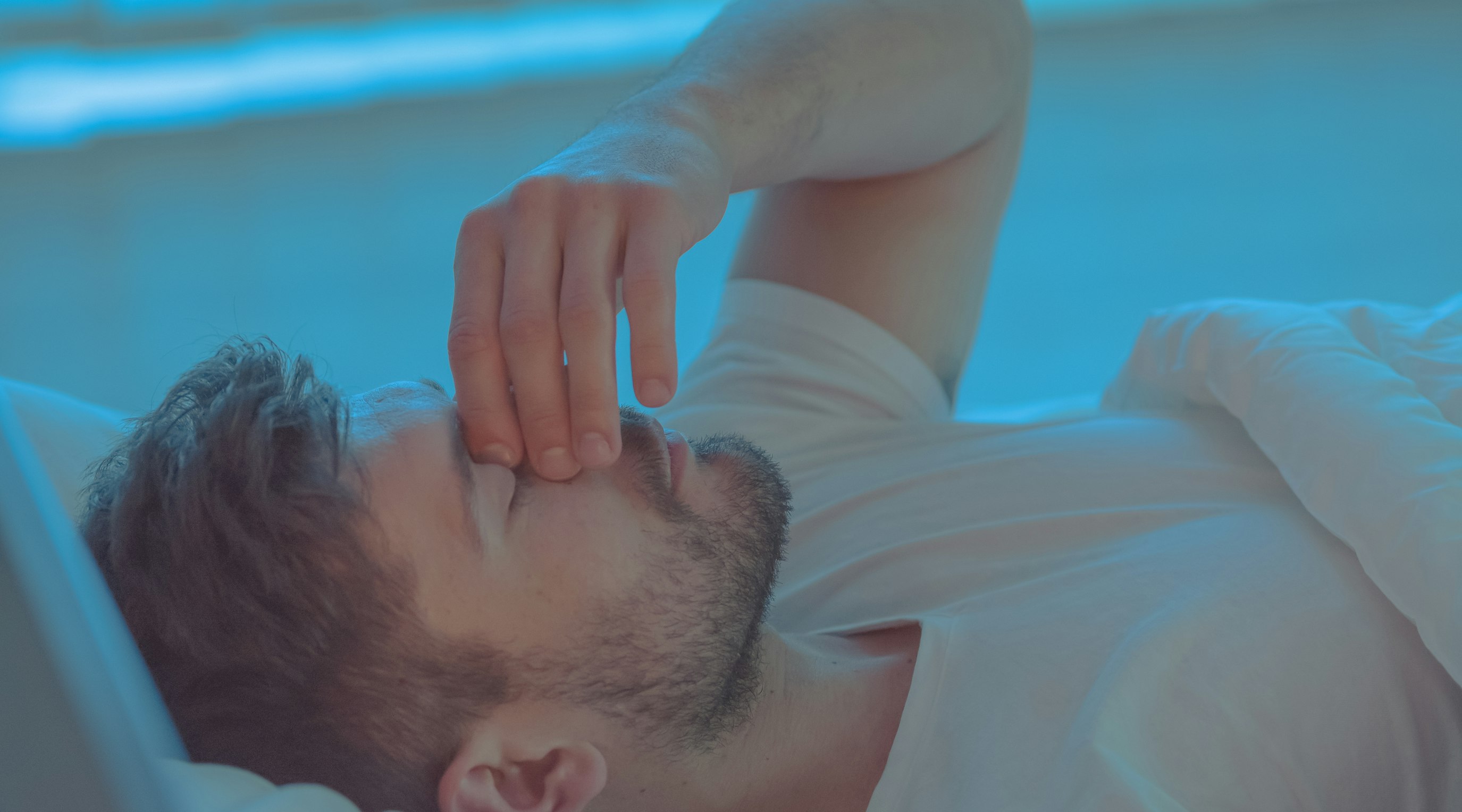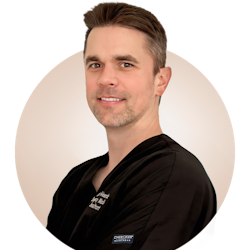Experts Explain: The potential of medical cannabis in managing sleep disorders
7 min read
Lucy MacKinnon
In the UK, around 1 in 5 of us aren’t getting enough sleep, and, 1 in 3 of us are thought to experience insomnia. While there are conventional and licensed medications that have proven to be successful for many, some patients cycle through these options with little to no success, and this can be extremely draining.
But, according to our own research, only 18% of adults in the UK are aware that medical cannabis is also available on prescription for those struggling to manage their sleep disorder.
Contents
So, to shed more light on how this alternative treatment can aid sleep, we sat down with our very own Dr Alexander Van Heerden. With years of experience as a specialist doctor working in emergency medicine treating both chronic and acute conditions, Dr Alex joined Releaf at the start of this year as one of our Clinical Doctors.
In this interview, Dr Alex shares real-life anecdotes and real-world experiences of how medical cannabis can be utilised in sleep disorder treatments. While his first-hand accounts go beyond the current clinical evidence, Dr Alex offers a unique perspective on how cannabis-based options can provide relief for those struggling with sleep, and reinforces just how prominent issues with sleep are in modern society.
So, without further ado, read what he had to say below:
Q: How frequently do patients with sleep disorders come to Releaf for medical cannabis consultations?
“I hold consultations with patients who have sleep disorders on a daily basis, and I’d say they make up about 20% of my patient base.
But, issues with sleep are also a very common worry for people with other health conditions, particularly those with depression, chronic pain and anxiety, and we see a lot of patients with these diagnoses’ too.
Usually, patients start to reach out after experiencing issues with their sleep for two or three months, but some go on for years not knowing that it is a potentially solvable problem.
Before arriving at Releaf, patients have typically tried implementing healthy sleeping habits and cycled through courses of benzodiazepines or sleeping tablets with little to no success.”
Q: What impact can a lack of quality sleep have on a person’s overall health and wellbeing?
“Because sleep is such an integral part of our health, when we don’t have regular, good quality sleep it can have a domino effect on our overall health and wellbeing, and of course as a doctor, this can be concerning.
A lack of sleep can accentuate any chronic issues such as pain and anxiety, make people less effective at work, and damage personal relationships with partners and friends, which can have a huge impact on people’s lives.
There is even evidence to suggest that chronic insomnia can cause serious health concerns like diabetes, heart disease, and sometimes even cancer.
But, the good news is that, by solving it, we can also improve, relieve, or ideally avoid, many of those same issues.”
Q: So, how do cannabis-based treatments come into the equation?
“Our bodies are supposed to naturally regulate sleep, but for those with sleeping disorders - this cycle is often dysregulated.
One of the systems involved in this process is the endocannabinoid system, which, coincidentally, is the system cannabis compounds enter when they’re absorbed into the bloodstream.
When cannabinoids like THC, CBD, and certain terpenes are absorbed, they can help in both initiating sleep, and maintaining a deep sleep by gaining access to the endocannabinoid system, which allows them to alter the sleep ‘architecture’.
So, when patients have found other approaches unsuccessful, it's a therapeutic application that's definitely worth exploring.”
Q: And typically, is THC or CBD better for managing sleeping concerns?
“Generally speaking, we’ve found that the balance of CBD, THC, and complimentary terpenes make the most difference for patients treating sleep concerns.
THC, in particular, has shown to reduce the length of the REM component of sleep cycles. When REM sleep is reduced, the light sleep component enhances and non-REM slow-wave sleep increases.
This sleep phase is when the body performs its powerfully restorative work, repairing cells and tissue, enhancing immune function, and assisting memory processing, and so, reducing REM sleep can be extremely helpful in some cases.
CBD on the other hand is well known for its relaxing and de-stressing qualities, which can prove particularly useful for patients who struggle to initiate sleep.”
Q: What about cannabis terpenes, are there any that are routinely recommended when treating sleep concerns?
“There are several cannabis terpenes that have shown to be beneficial components when treating sleep concerns because of their individual properties.
For example, chronic pain sufferers that are struggling with sleep concerns would most likely benefit from Caryophyllene, whereas a patient with anxiety would more likely respond to Linalool.
So, when we see patients at Releaf, we look at the terpene profile of different medical cannabis cultivars, or cannabis oils and evaluate what would possibly work best for them and their specific symptoms.”
Q: And how do you determine what will work best for each patient?
“At Releaf we evaluate the patient's needs and determine which products may provide them with the most relief depending on their concentration of cannabinoids, and which terpenes they contain.
Usually, cannabis oils are preferred when treating sleeping concerns because they are long-lasting, and we carefully calculate the dosages depending on the patient’s age, previous experience with cannabis products, and the medical condition they are treating.
Cannabis oils take around an hour to work, and so we recommend that patients incorporate taking the oil into their bedtime routine, about an hour before they’d like to fall asleep.
There are very few interactions that other prescribed medications cause concern with medical cannabis at the doses we prescribe for treating sleeping disorders, but of course this information is also carefully evaluated, and all treatment plans are carefully monitored by our clinical team.”
Q: And finally, in your experience, how successful have medical cannabis applications been for patients with sleep disorders?
“Medical cannabis can be a massive game changer for patients with insomnia, and I have yet to meet a patient who has not benefited from this treatment option.
Sometimes new patients may feel groggy in the morning when they first start using cannabis-based treatments, but often this goes away after the first week or two, and if it doesn’t, we can easily adjust the medication, dosages, or dosing routine.
Generally speaking, patients usually report feeling an improvement in their sleep within the first week, but it is important to remember that the brain can take months to re-learn to sleep, especially with long term insomniacs.
But, once sleep has improved, most patients report having more energy, less stress and better mood, as even sometimes note improvements in other areas – such as weight loss or improved libido.
If I could, I’d tell you every success story of patients I’ve worked with, but there are too many to count!
My favourite, however, is a patient who managed to overcome his insomnia using medical cannabis. After a few weeks of getting proper rest, and good quality sleep he’d managed to come off the addictive sleeping tablets he was also being prescribed, get a new job that he enjoyed, and noted a marked improvement in his relationship with his wife.
Really, we all need sleep!”
Final Thoughts
If you, or a loved one, is struggling with a sleep disorder and conventional treatments are unable to provide you with the relief you need, medical cannabis may be an alternative worth exploring.
At Releaf we are dedicated to helping patients find the most effective solution for them. To determine whether medical cannabis could be right for you, fill out our free online eligibility checker today.
Your journey to better health, could be just a few sleeps away!
Share article
Did you like this article?
It is important to seek medical advice before starting any new treatments. The patient advisors at Releaf are available to provide expert advice and support. Alternatively, click here to book a consultation with one of our specialist doctors.
Elevate your wellness with medical cannabis
Get comprehensive care, convenience, and confidence with an all-in-one treatment plan.
Am I eligible?Authors
With five years of journalism and healthcare content creation under her belt, Lucy strives to improve medical cannabis awareness and access in the UK by producing high quality, credible content.
compliance checked
Compliance Director
meet our specialist
Editorial Policy
All of our articles are written by medical cannabis experts, guided by strict sourcing guidelines, and reference peer-reviewed studies and credible academic research. Our expert clinical team and compliance specialists provide valuable insights to ensure accuracy when required. Learn more in our editorial policy.
Need more help?












